An electrician is one of the most important professionals you can call when your home’s electrical system starts showing signs of age—and in Chattanooga, TN, many older homes are in serious need of electrical panel upgrades. These vintage houses, while full of charm and character, often hide outdated electrical components behind their walls. As technology advances and our need for power increases, those original systems fall behind, posing risks to safety and comfort.
Electrical panels are the gateway through which power enters your home. Over time, these systems can become overloaded, worn out, or simply outdated, leading to frequent power issues and potential hazards. Knowing when and why to upgrade is crucial, especially in homes that were built several decades ago.
The Role of Electrical Panels in a Home’s Power System
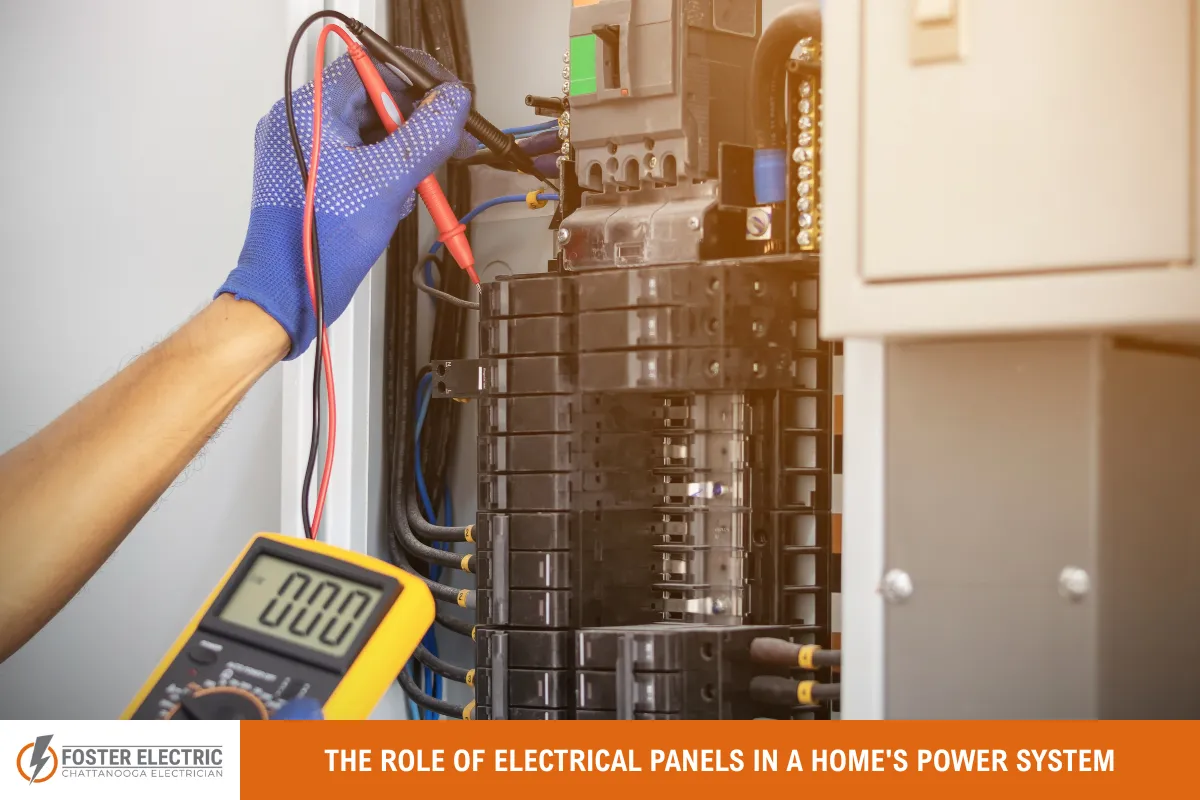
An electrical panel, also known as a breaker box, is a metal cabinet that houses circuit breakers or fuses. It distributes electricity to various parts of your home and protects circuits from overloading. Each circuit breaker is assigned to a specific zone or appliance in the house, such as the kitchen, laundry room, or HVAC system.
When a breaker trips, it cuts power to that area to prevent damage or fire. This safety mechanism works well when the panel is up to date. But in older homes, the panel may not function efficiently because it wasn’t designed for the demands of modern living. Decades ago, homes were built to accommodate minimal appliances: maybe a fridge, a stove, a few lights, and a couple of outlets. Today, homes demand much more—from smart TVs and high-powered microwaves to electric car chargers and whole-home Wi-Fi.
Outdated electrical panels weren’t made for today’s technology. They can cause flickering lights, overloaded circuits, frequent breaker trips, and overheating. These signs are not just annoyances; they’re warnings.
Why Older Homes in Chattanooga Are Affected the Most
Many homes in Chattanooga were built before the 1980s, primarily in areas such as North Shore, Brainerd, and St. Elmo. While their architecture may be beautiful, the internal systems are often neglected. Electrical panels from those eras were built to handle far less amperage—typically 60 to 100 amps. Today’s homes usually require at least 200 amps to power all of their devices and systems safely.
Also, older homes are more likely to have panels from manufacturers that have since been discontinued due to safety concerns. Brands like Federal Pacific Electric (FPE), Zinsco, and Pushmatic were once common in American homes. However, many of their panels are now known to have serious design flaws, including failure to trip during overload, overheating, and poor connections that lead to arcing. These are not rare occurrences—they’ve been well-documented over the years, especially in older residential neighborhoods.
Signs That Your Home Needs an Electrical Panel Upgrade
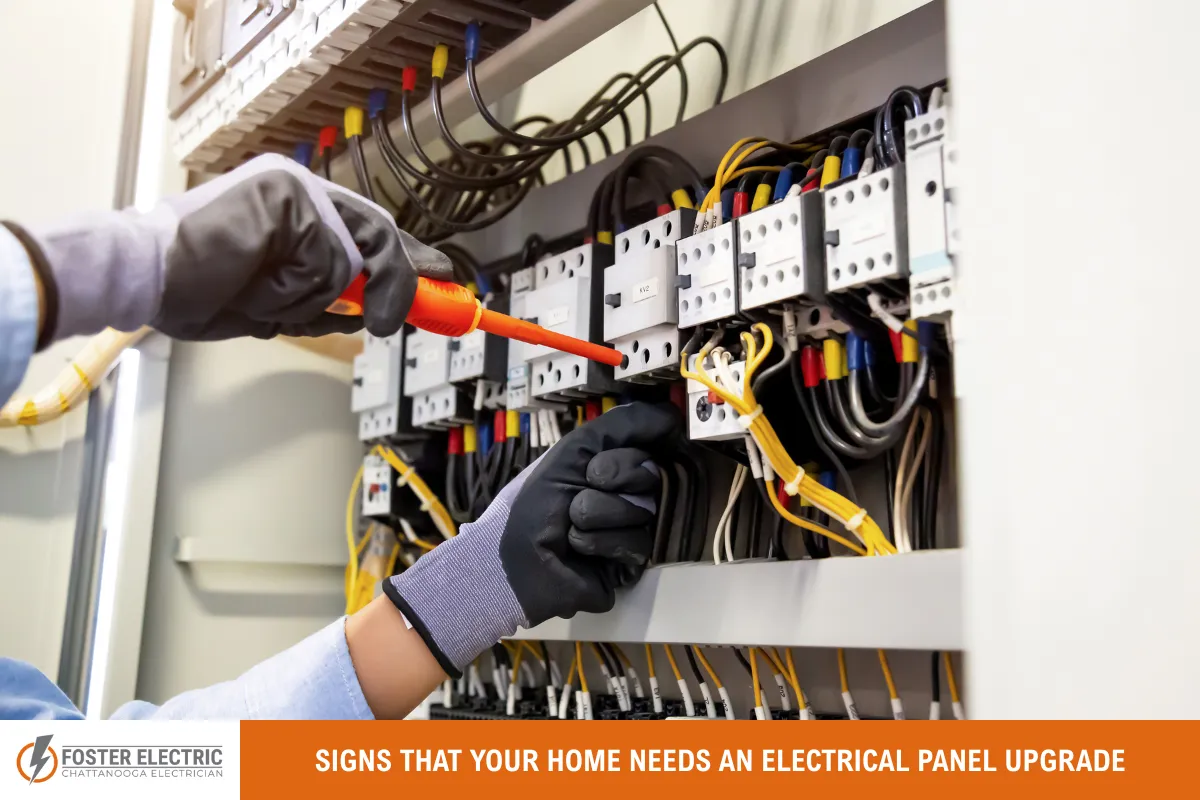
Recognizing the signs of an outdated panel can help prevent costly repairs or even electrical fires. Here’s what to watch for:
Frequent Circuit Breaker Trips
If your breakers keep tripping when multiple appliances are in use, your system is overloaded. This is your panel telling you it can’t handle the current demand.
Dimming or Flickering Lights
When your lights flicker or dim—especially when larger appliances, such as the HVAC or washer, kick on—it means your circuits are straining. This could lead to long-term damage if ignored.
Limited or Outdated Outlets
Homes built decades ago often lack sufficient outlets to meet today’s needs. If you rely on power strips or extension cords, your panel may not have enough circuits to meet your demand.
Discoloration or Warmth Around the Panel
A panel that feels warm to the touch, has scorch marks, or emits a burning odor is a serious red flag. This could indicate an internal issue that might lead to an electrical fire.
Panel Age of 25+ Years
Any panel older than 25 years should be inspected for potential issues. Materials degrade, codes change, and demands increase. If your panel has never been upgraded, it’s overdue for a checkup.
The Dangers of Ignoring an Outdated Electrical Panel
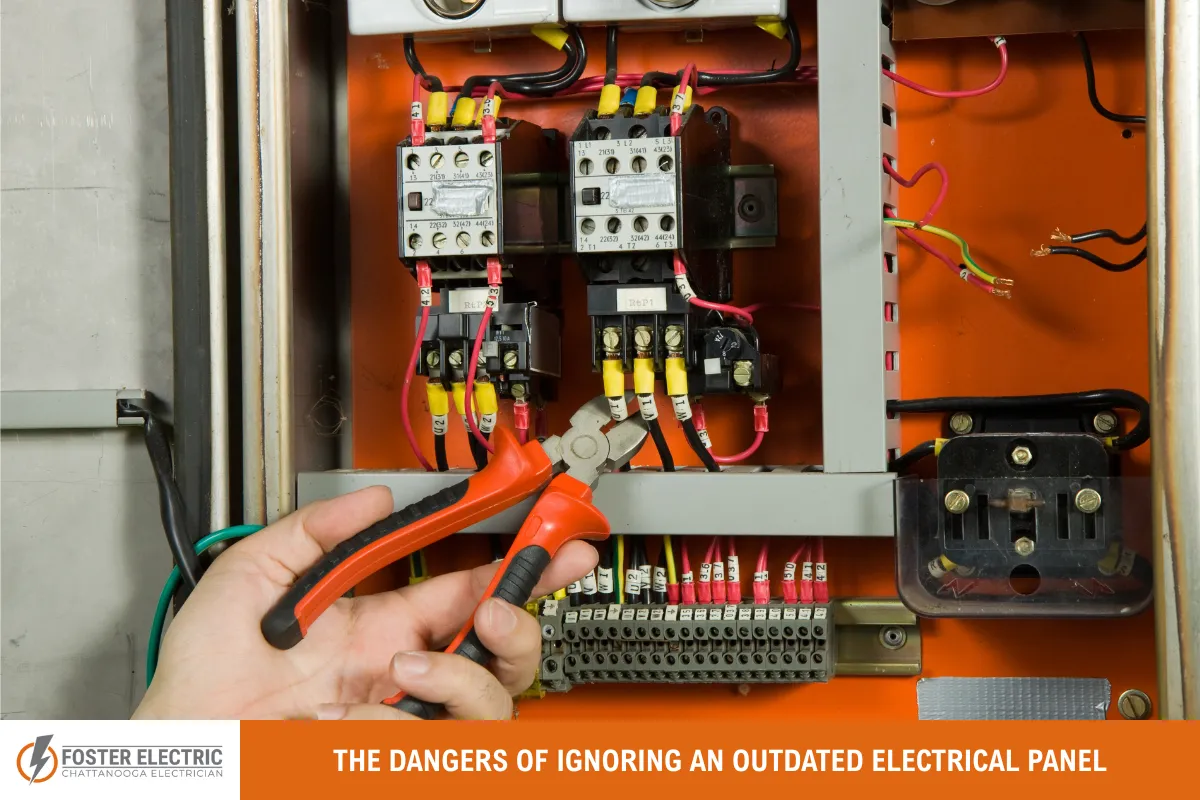
Delaying an upgrade may seem harmless until something goes wrong. The risks include more than just inconvenience.
- Fire Hazard: Outdated panels are one of the leading causes of residential electrical fires. Poor connections and overloaded circuits can spark without warning.
- Appliance Damage: Sensitive electronics can be damaged by power fluctuations caused by an old or faulty panel.
- Decreased Property Value: Home inspectors routinely check electrical systems. A failing panel can hurt your chances of selling a home or may require an urgent fix before closing.
- Insurance Issues: Some insurance providers may refuse coverage or deny claims for damages if your panel is outdated or on a list of recalled models.
Benefits of Upgrading to a Modern Electrical Panel
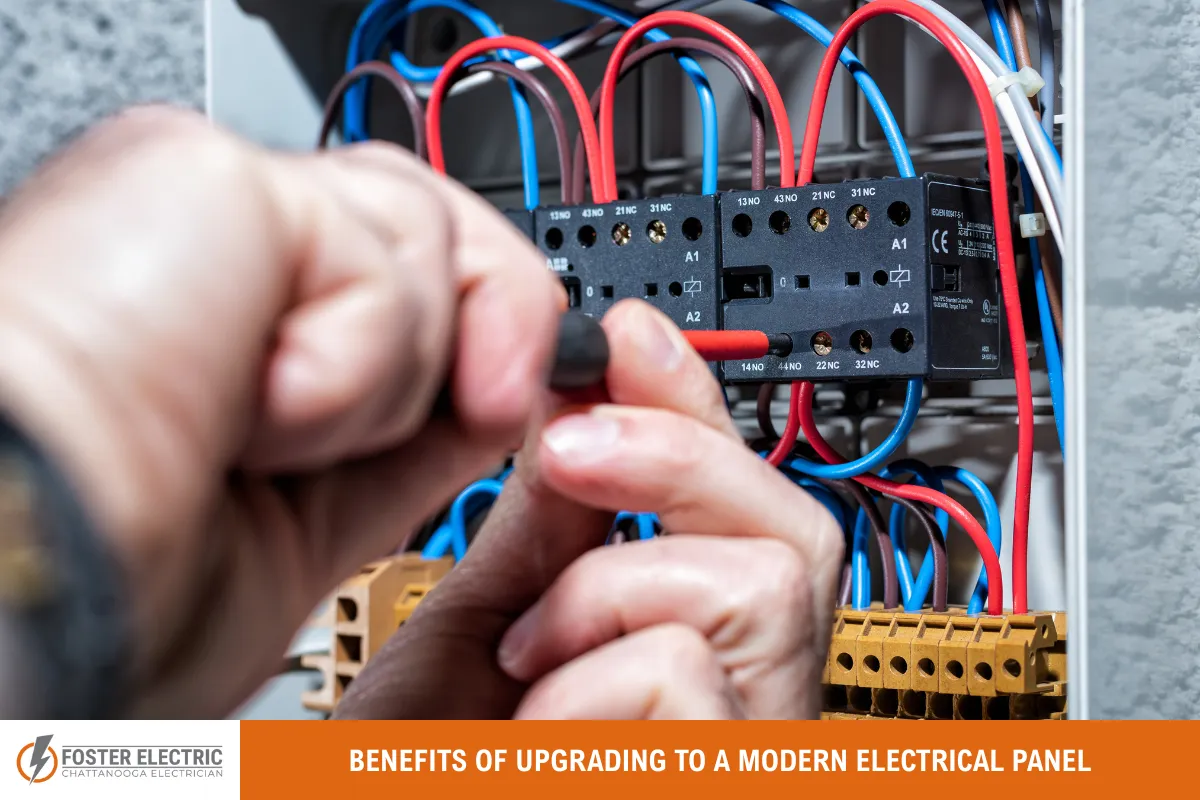
Upgrading doesn’t just prevent problems—it brings several long-term benefits that enhance your quality of life and your home’s value.
- Improved Safety: A new panel ensures your home is protected against fires, overheating, and circuit failure.
- Reliable Power: Say goodbye to flickering lights and breakers that trip under pressure.
- Support for Modern Devices: Run large appliances, high-speed internet, and smart devices without fear of overloading your system.
- Home Expansion Readiness: Whether you’re adding a new room, installing central AC, or planning for solar panels, a modern panel gives you the capacity to grow.
- Increased Resale Value: Buyers appreciate—and often require—updated electrical systems when considering older homes.
What’s Involved in an Electrical Panel Upgrade?
Upgrading a panel is a complex task that involves removing the existing box, replacing it with a higher-capacity model, rerouting wires, labeling circuits, and ensuring everything complies with the relevant codes.
In Chattanooga, electricians must adhere to both the National Electrical Code and local municipal regulations. Permits and inspections are integral to the process, and only licensed professionals are authorized to perform this work legally and safely.
The upgrade process generally includes:
- Evaluating the home’s electrical load
- Removing the old panel and breakers
- Installing a new 200-amp (or higher) panel
- Upgrading grounding and bonding systems
- Inspecting for any outdated wiring that might need replacement
- Scheduling and passing the final inspection
How Long and How Much Does It Take?
The upgrade typically takes a full workday, depending on the accessibility and wiring complexity. However, preparation, permitting, and inspection can add time to the overall project. During installation, your power may be temporarily shut off.
Costs vary based on panel size, accessibility, required wiring upgrades, and local permit fees. While prices can range widely, investing in an upgrade can save you from fire damage, property loss, or emergency repairs—costs that far exceed the upfront investment.
Choosing a Licensed Electrician in Chattanooga
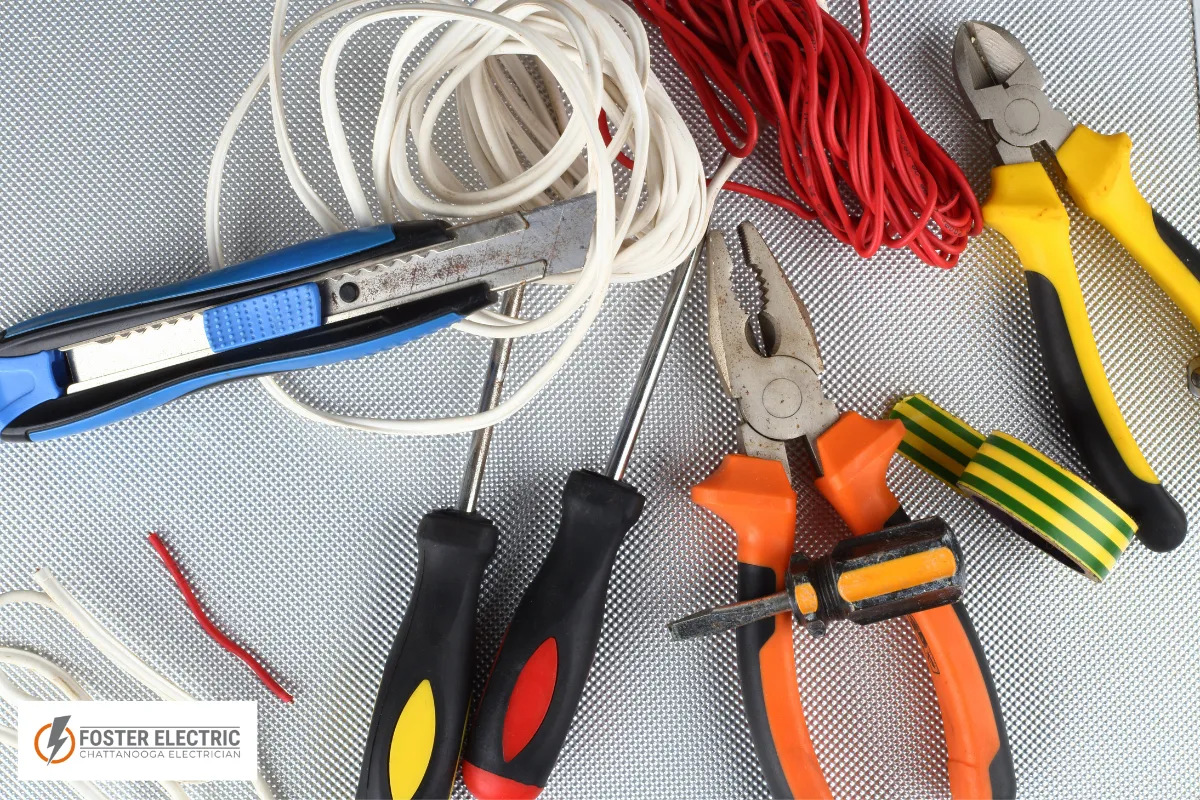
Upgrading an electrical panel isn’t a DIY project. It’s a technical and highly regulated job. Choosing a licensed electrician ensures the job is done safely, legally, and efficiently. A licensed professional will understand Chattanooga’s local codes, file the proper permits, and follow best practices to keep your home and family protected.
When selecting an electrician, consider these points:
- Are they licensed and insured in the state of Tennessee?
- Do they have experience with older homes?
- Can they explain your options clearly?
- Will they handle permitting and inspection?
- Do they offer a warranty on parts and labor?
Hiring a professional is not just about convenience—it’s about doing things the right way the first time.
Two Final Reasons Not to Delay
Preventative Costs Are Lower Than Emergency Repairs
Waiting for your panel to fail before acting is like ignoring a leaky roof until it collapses. Emergency electrical work is expensive and can come with property damage or personal risk.
Peace of Mind for You and Your Family
Knowing your home’s electrical system is up to date gives you peace of mind. You won’t have to worry when plugging in a new appliance or using your air conditioning during a heat wave.
Safeguard Your Home Before the Next Power Problem
Electrical panel upgrades aren’t just for adding new gadgets—they’re about keeping your home safe, functional, and ready for the future. As technology continues to evolve and Chattanooga continues to grow, the demand for reliable electricity is expected to increase. Homes that are still operating on systems built for past generations will struggle to keep up.
Taking the step now to upgrade your panel is not only smart but necessary. It ensures your family’s safety, supports your daily lifestyle, and adds real value to your property.
Chattanooga Electrician – Foster Electric
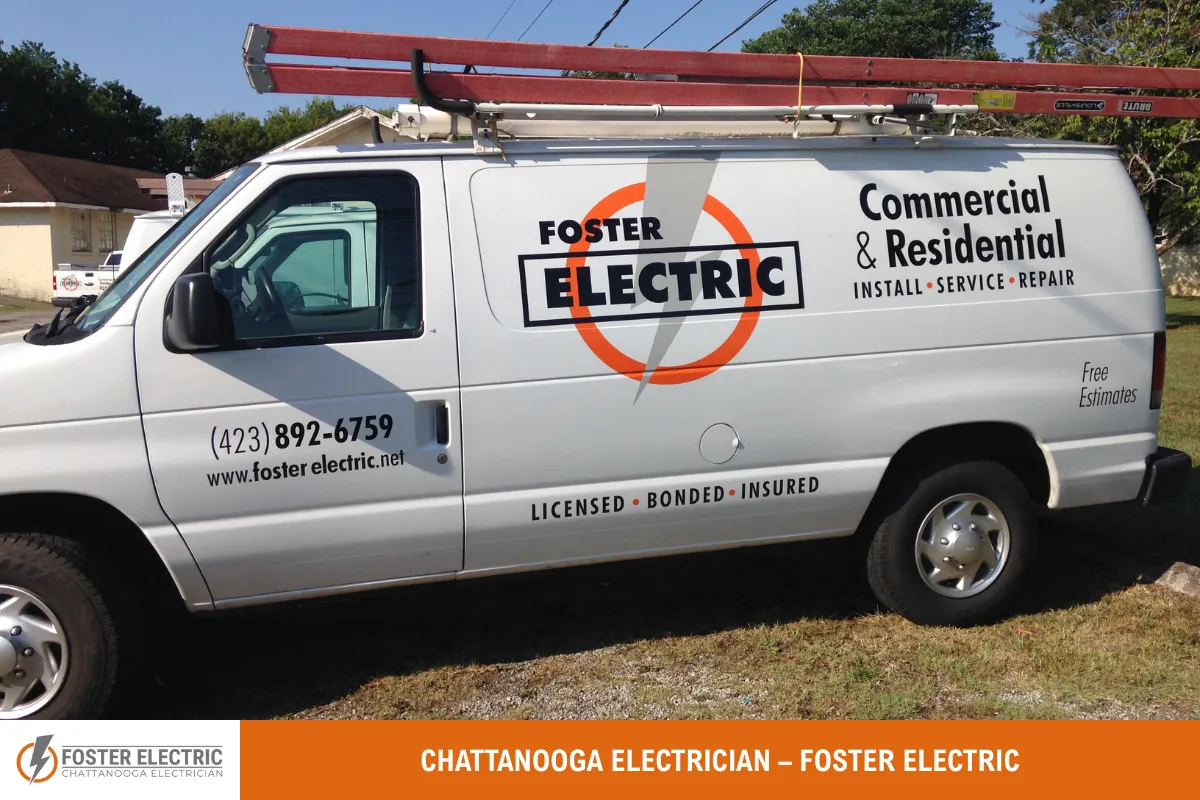
Foster Electric in Chattanooga offers trusted and straightforward electrical services for both residential and commercial clients. We handle all types of electrical repairs and installations, including service panel upgrades for older homes that need safer and more reliable power.
Our local electricians are trained to deal with everything from full rewiring to simple outlet installations. Whether you’re upgrading your home for modern appliances or planning a renovation, we’ve got the experience and tools to do it right.
Need fast and dependable help with your electrical system? Call us now at (423) 892-6759!
Frequently Asked Questions About Electrical Panel Upgrades in Older Homes
1. Why are outdated electrical systems a concern for older homes in Chattanooga?
Outdated electrical systems in older Chattanooga homes often contain components that no longer meet current safety standards. Many were built with fuse boxes, knob-and-tube wiring, or aluminum wiring, all of which pose potential safety hazards today. These systems weren’t designed to support modern electrical features, such as smart home devices, electric vehicles, or high-powered heat pumps. The electrical demand in today’s homes is significantly higher, and an old breaker box can’t handle it. Without proper grounding, ungrounded outlets pose a significant risk of shock or fire. A professional electrician can assess these risks and recommend updated solutions, such as installing a circuit breaker panel, grounding wires, and replacing outdated electric meters or service lines. Not only will this boost enhanced safety, but it will also protect your property’s long-term value.
2. What are the advantages of upgrading to a 200 amp electrical panel?
Switching to a 200 amp electrical panel is a major home improvement that accommodates today’s high electrical demand. Unlike older systems, which may only support 60–100 amps, a 200 amp system ensures your power supply remains stable even when running multiple devices. This is especially important if you’re installing EV chargers, a heat pump water heater, or using solar power systems. A modern panel minimizes potential disruptions, enabling the smooth operation of smart home devices, HVAC units, and energy-efficient lighting. It also supports future upgrades without overloading the system. Moreover, many homeowners are eligible for rebates and tax credits under the Inflation Reduction Act when they switch to energy-efficient and electric-ready infrastructure. By upgrading, you not only protect your home from potential safety hazards but also enjoy long-term savings and improved reliability.
3. What risks are associated with aluminum wiring in older Chattanooga homes?
Aluminum wiring, commonly found in mid-century homes, can pose serious safety hazards if not properly maintained or upgraded. Over time, aluminum expands and contracts more than copper wiring, which can loosen connections at the circuit breaker panel, fuse box, or outlets. This movement creates resistance, causing overheating that may lead to electrical fires. Additionally, aluminum oxidizes more quickly, resulting in poor conductivity. Homes with aluminum wiring may also lack grounded outlets, increasing the risk of electric shock. A professional electrician can inspect the system and recommend safer alternatives, such as copper pigtailing or complete rewiring. Suppose your breaker box or main breaker exhibits signs of overheating, discoloration, or a burning odor. In that case, it may indicate a potential issue. In that case, it’s time for an urgent inspection. Upgrading to modern electrical systems with copper wiring and grounded circuits significantly reduces risk, ensures long-term safety, and supports the integration of modern electrical features, such as EV chargers and smart home devices.
4. How does an electrical panel upgrade affect solar power system installations?
A home’s electrical panel must be up to date to safely integrate solar power systems. Most older breaker boxes lack the capacity or correct wiring to handle energy input from solar panels. These systems send power back into your home, and possibly to the grid, requiring a more advanced power supply setup and backfeed-ready circuits. A 200 amp upgrade ensures the home can accept this increased load without overloading the main breaker or causing voltage instability. Proper installation involves assessing the electric meter, ensuring code-compliant grounded outlets, and potentially upgrading the service line to meet code requirements. This upgrade is crucial for homes in Chattanooga pursuing solar under the Inflation Reduction Act, which provides financial incentives for energy efficiency. A qualified professional electrician will ensure compatibility and safety while aligning with utility regulations and current safety standards. This not only increases your home’s efficiency but also ensures long-term safety and performance.
5. What should I expect during the electrical panel upgrade process?
The upgrade process for a circuit breaker panel involves several critical steps to ensure a safe and compliant transition. First, a professional electrician evaluates your home’s electrical systems, including wiring, outlets, and the breaker box. If knob-and-tube wiring, aluminum wiring, or ungrounded outlets are present, additional replacements may be recommended. The old fuse box or panel is removed, and a new 200-amp panel is installed, featuring new main breakers, grounded circuits, and modern panel options. A temporary power shut-off is necessary, but the process typically completes within a day. Permits and inspections are typically required in Chattanooga to verify compliance with current safety standards. The upgrade may also include a new electric meter and service line to handle increased electrical demand. Although some disruption is expected, the outcome is a more reliable power supply, readiness for EV chargers or solar power systems, and greater long-term savings through energy efficiency.
Read more: Warning Signs Your Electrical Panel Is Outdated – Chattanooga Electrician Tips
